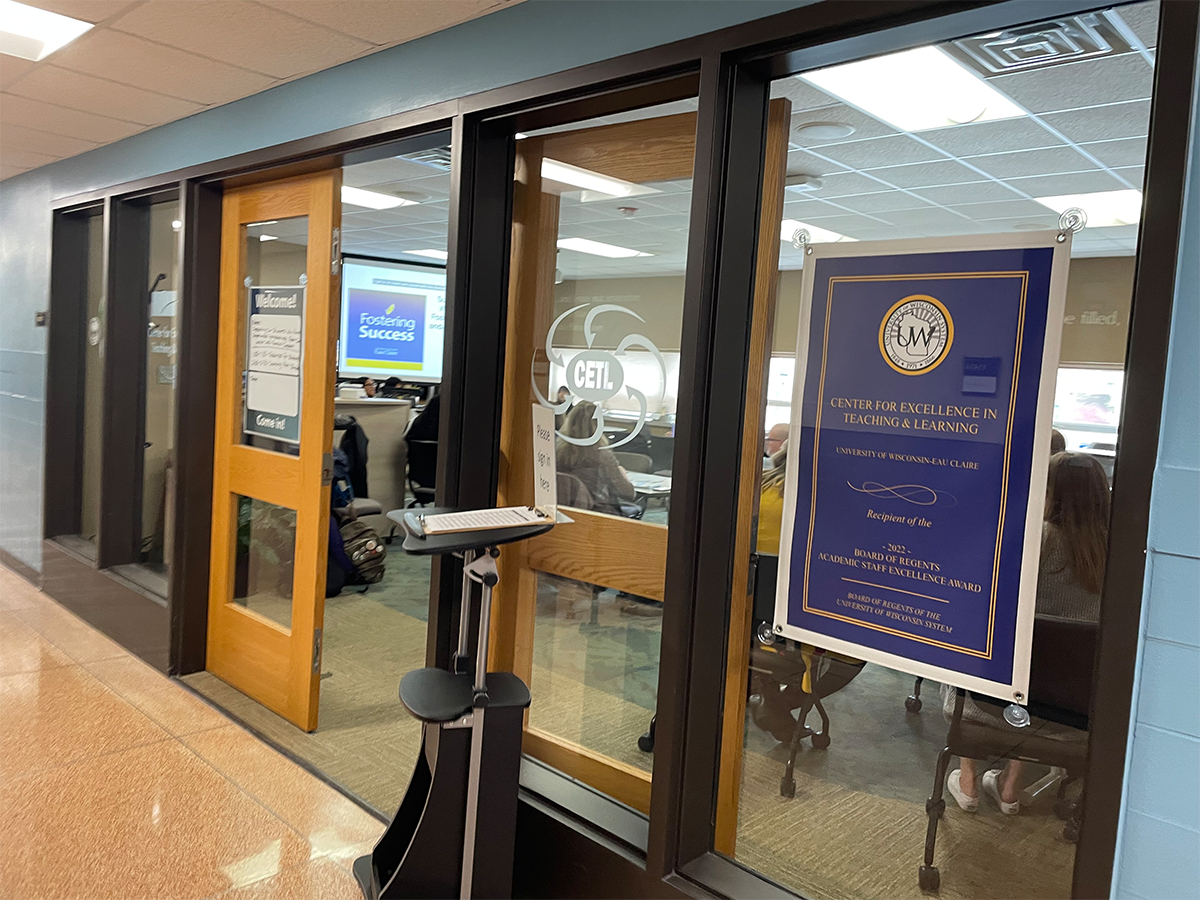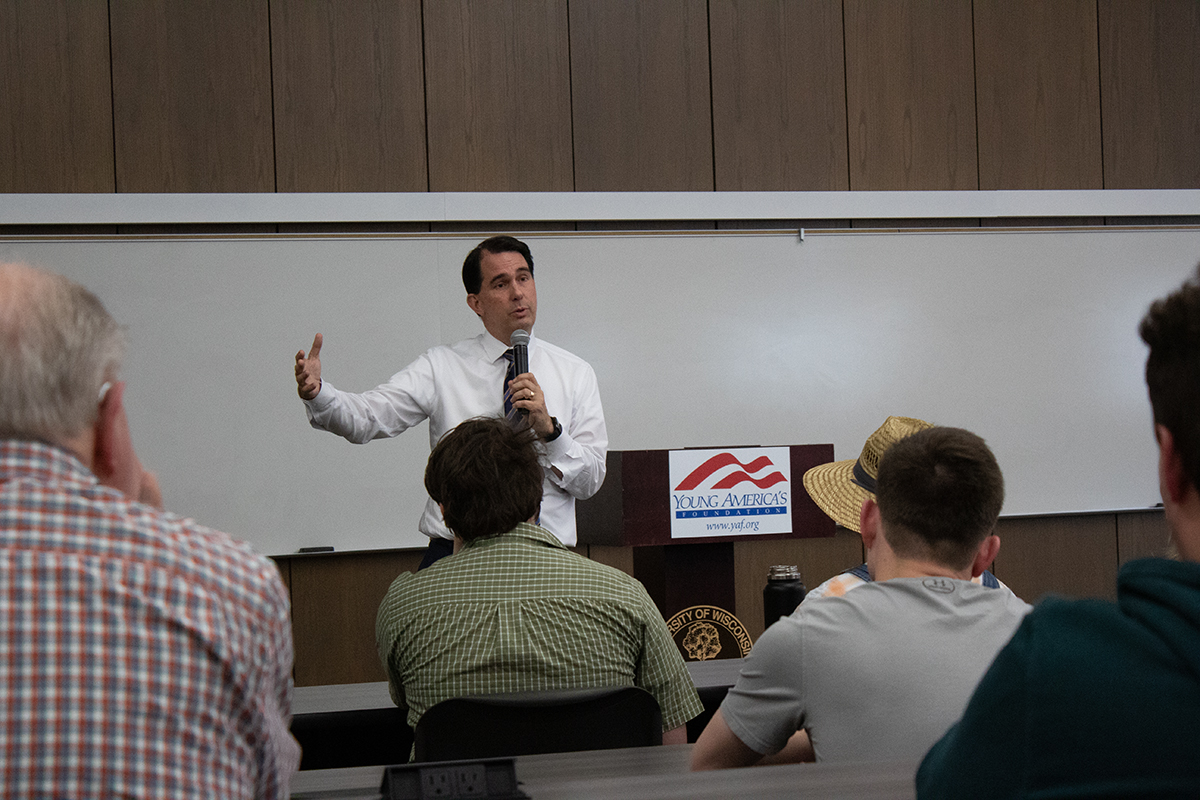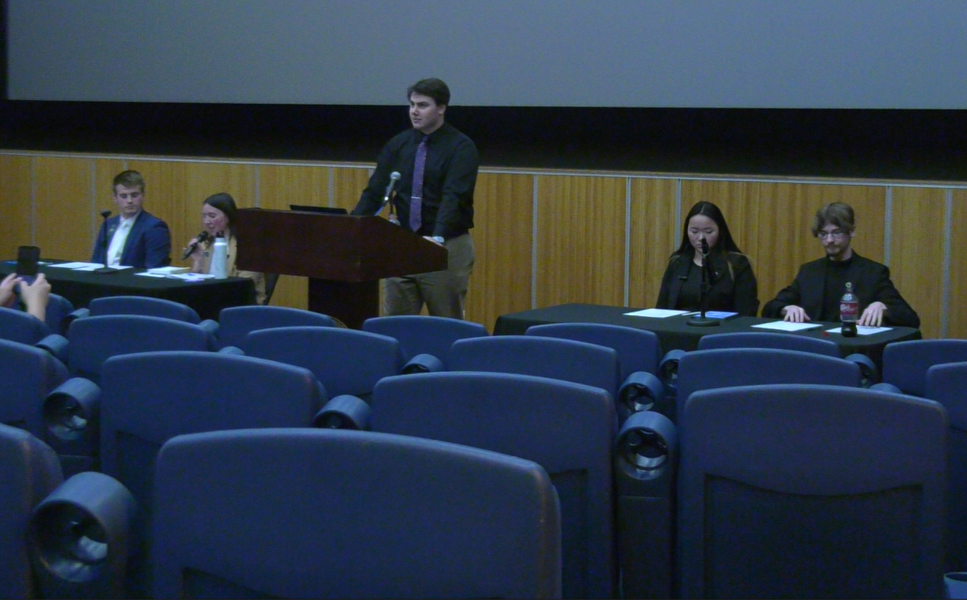The controversial bill — which proposes to end collective bargaining for the benefits of most state and local employees, as well as requires them to pay nearly 12 percent of their health insurance premiums and half their pension contributions (almost six percent of their salaries) — is being pushed by Walker in an attempt to end an almost $137 million deficit in the current state budget.
“We (UW-Eau Claire faculty) are looking at an eight to 12 percent reduction from this bill,” said Geoff Peterson, professor of political science and faculty representative to the UW System. “Every faculty member should be concerned; for the majority, this means a significant decrease in our take-home pay.”
With busloads of students and staff arriving back from yesterday’s protest, the majority of the campus view seems skewed toward opposing the bill.
Realistically, however, opinions are rather mixed.
Below is a compilation of university member’s thoughts both against — and for — Walker’s
proposal:
Against: “It’s disturbing.”
Thomas Kemp, professor of economics and city councilman, was in Madison both Monday and Wednesday regarding the bill.
“Monday gave us (Eau Claire council) a chance to meet individually with state legislators to express our concern,” he said. “We felt it both inappropriate and unnecessary to strip state workers from their collective bargaining rights. We should have a goal of building investment in the 21st century — that’s important, and public employees deserve it. If this bill passes though, we’ll no longer be able to do that.”
Kemp said the legislators, to his disappointment, showed little interest in working together to come up with an alternative solution to the state’s deficit problem.
“Simply put, across the board cuts will reduce the quality of education,” he said. “We tried to express that the quality of our system was in jeopardy, but the legislators seemed OK with it … almost like we were ‘over-qualified’ enough as it is. That, above all, was the
most disturbing.”
Senior world politics major Nathan Zeckmeister is also opposed to the bill.
“I’m planning on going to graduate school, and I’d hopefully like to teach high school some day,” he said. “However, I can’t imagine not being able to bargain. This is bad for the university in general, and aside from our teachers, it could cause anyone going into that profession to reconsider.”
For: “It’s tough, but necessary.”
While the uproar of protests strongly favors ‘killing the bill,’ a handful of students remain in support, believing the budget cuts — while admittedly harsh — to be a necessary step in relieving the state from its debt.
Mark Morgan, economics major and academic affairs director of Student Senate, believes the bill is a realistic approach to fixing the deficit.
“It’s a difficult bill, nobody will deny that … but with the budgetary reality, there has to be cuts,” he said. “If the state doesn’t take from pension or healthcare, then the only option is cutting workers flat out by about 6,000.”
“Or, there’s always digging into Medicaid,” he went on to say. “I mean, none of these options are good. And in comparison to laying people off or taking from Medicaid, asking for increased benefit seems relatively reasonable.”
Senior public relations major Christina Cardinale also believes the bill is the right step for Wisconsin to take.
“Legislation similar to this is why I voted for Scott Walker,” she said. “We have a huge deficit, and through this bill Walker is not only helping to balance the budget, but is doing it while saving thousands of jobs.”
Cardinale said she supports Walker’s goal of balancing the budget without laying off state workers, giving them the option of whether or not to pay union dues.
“This puts Wisconsin more on track with the rest of the nation … and it will hopefully take some of the power away from the ridiculously strong teacher’s union,” she said. “The fact of the matter is (that) Wisconsin is writing checks it can’t cash. I can’t get away with it, so why should the government?”
As the debate continues — both here and in Madison — the real judgment will rise from the 2011–13 biennial study set to release at the end of February, said Peterson.
“This certainly is having an impact,” he said. “But we’ll all know for sure about the cuts once the biennial budget arrives.”






